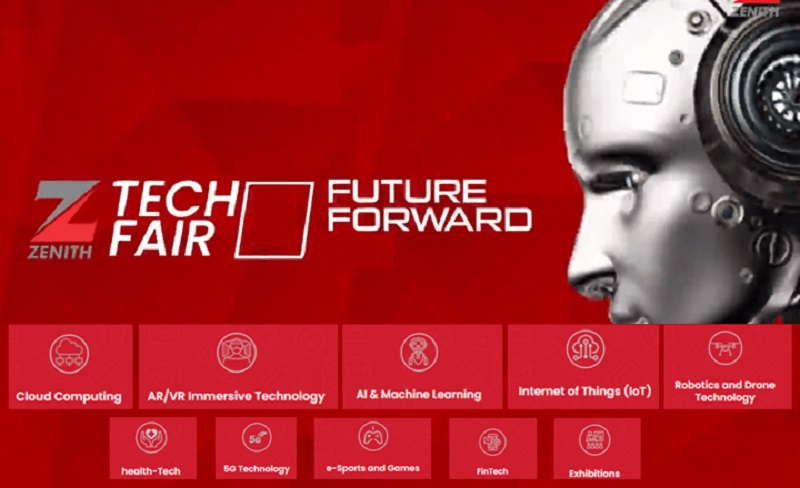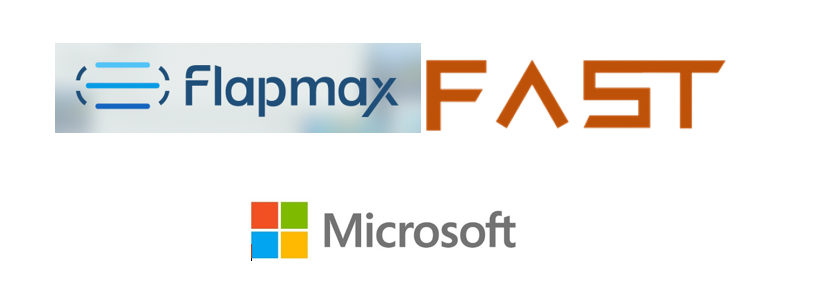Technology
Microsoft Promises Secure Cloud Services Across Africa


By Dipo Olowookere
Tech giant, Microsoft, on Thursday promised to deliver the complete, intelligent Microsoft Cloud for the first time from datacentres located in Africa, an investment it described as a major milestone in the company’s mission to empower every person and every organisation on the planet to achieve more, and a recognition of the enormous opportunity for digital transformation in Africa.
Expanding on existing investments, Microsoft says it will deliver cloud services, including Microsoft Azure, Office 365, and Dynamics 365, from datacentres located in Johannesburg and Cape Town, South Africa with initial availability anticipated in 2018.
The new cloud regions will offer enterprise-grade reliability and performance combined with data residency to help enable the tremendous opportunity for economic growth, and increase access to cloud and internet services for organisations and people across the African continent.
“We’re excited by the growing demand for cloud services in Africa and their ability to be a catalyst for new economic opportunities,” said Scott Guthrie, executive vice president, Cloud and Enterprise Group, Microsoft Corp. “With cloud services ranging from intelligent collaboration to predictive analytics, the Microsoft Cloud delivered from Africa will enable developers to build new and innovative apps, customers to transform their businesses, and governments to better serve the needs of their citizens.”
Expanding Access & Opportunity: Currently many companies in Africa rely on cloud services delivered from outside of the continent. Microsoft’s new investment will provide highly available, scalable, and secure cloud services across Africa with the option of data residency in South Africa. With the introduction of these new cloud regions, Microsoft has now announced 40 regions around the world – more than any major cloud provider. The combination of Microsoft’s global cloud infrastructure with the new regions in Africa will connect businesses with opportunity across the globe, help accelerate new investments, and improve access to cloud and internet services for people and organisations from Cairo to Cape Town.
“We greatly value Microsoft’s commitment to invest in cloud services delivered from Africa. Standard Bank already relies on cloud technology to provide our customers with a seamless experience,” says Brenda Niehaus, group CIO at Standard Bank. “To achieve success as a business, we need to keep pace with market developments as well as customer needs, and Office 365 empowers us to make a culture shift towards becoming a more dynamic organisation, whilst Azure enables us to deliver our apps and services to our customers in Africa. We’re looking forward to achieving even more with the cloud services available here on the continent.”
Investing in African Innovation: This announcement expands on ongoing investments in Africa, where organisations are using currently available cloud and mobile services as a platform for innovation in health care, agriculture, education, and entrepreneurship. Microsoft has been working to support local start-ups and NGOs, unleashing innovation that has the potential to solve some of the biggest problems facing humanity, such as the scarcity of water and food, and economic and environmental sustainability. One start-up, M-KOPA Solar, provides affordable pay-as-you-go solar energy to over 500,000 homes using mobile and cloud technology. AGIN has built an app connecting 140,000 smallholder farmers to key services, enabling them to share data and facilitating $1.3 million per month in finance, insurance and other services.
Across Africa, Microsoft has brought 728,000 small and mid-size enterprises (SMEs) online to help them transform and modernise their businesses, and over 500,000 are now utilising Microsoft cloud services, with 17,000 using the 4Afrika hub to promote and grow their businesses. The Microsoft Cloud is also helping Africans build job skills, with 775,000 trained on subjects ranging from digital literacy to software development. We anticipate the Microsoft Cloud from Africa will fuel extensive new opportunities for our 17,000 regional partners and customers alike.
“This development broadens the options available to us in our modernisation journey of Government ICT infrastructure and services. It allows us to take advantage of new opportunities to develop innovative government solutions at manageable costs, as well as drive overall improvements in operations management, while improving transparency and accountability,” says Dr. Setumo Mohapi, CEO at SITA.
The Microsoft Trusted Cloud: Microsoft has deep expertise protecting data, championing privacy, and empowering customers around the globe to meet extensive security and privacy requirements. With Microsoft’s Trusted Cloud principles of security, privacy, compliance, transparency, and the broadest set of compliance certifications and attestations in the industry, Microsoft’s cloud infrastructure supports over a billion customers and 20 million businesses around the globe.
“By establishing hyperscale cloud datacentre capacity in South Africa, Microsoft is directly addressing customers’ concerns, and demonstrating commitment to the delivery of cloud services within the country and the region as a whole,” says Jon Tullett, senior research manager, IDC MEA. “The presence of local facilities will be greatly encouraging to South African customers, particularly those in regulated industries such as financial services and the public sector where data sovereignty concerns are paramount. This is a strongly positive development for the cloud industry in Africa, and particularly Microsoft’s ecosystem of partners, ISVs and customers.”
Technology
Expert Reveals Top Cyber Threats Organisations Will Encounter in 2026

By Adedapo Adesanya
Organisations in 2026 face a cybersecurity landscape markedly different from previous years, driven by rapid artificial intelligence adoption, entrenched remote work models, and increasingly interconnected digital systems, with experts warning that these shifts have expanded attack surfaces faster than many security teams can effectively monitor.
According to the World Economic Forum’s Global Cybersecurity Outlook 2026, AI-related vulnerabilities now rank among the most urgent concerns, with 87 per cent of cybersecurity professionals worldwide highlighting them as a top risk.
In a note shared with Business Post, Mr Danny Mitchell, Cybersecurity Writer at Heimdal, said artificial intelligence presents a “category shift” in cyber risk.
“Attackers are manipulating the logic systems that increasingly run critical business processes,” he explained, noting that AI models controlling loan decisions or infrastructure have become high-value targets. Machine learning systems can be poisoned with corrupted training data or manipulated through adversarial inputs, often without immediate detection.
Mr Mitchell also warned that AI-powered phishing and fraud are growing more sophisticated. Deepfake technology and advanced language models now produce convincing emails, voice calls and videos that evade traditional detection.
“The sophistication of modern phishing means organisations can no longer rely solely on employee awareness training,” he said, urging multi-channel verification for sensitive transactions.
Supply chain vulnerabilities remain another major threat. Modern software ecosystems rely on numerous vendors and open-source components, each representing a potential entry point.
“Most organisations lack complete visibility into their software supply chain,” Mr Mitchell said, adding that attackers frequently exploit trusted vendors or update mechanisms to bypass perimeter defences.
Meanwhile, unpatched software vulnerabilities continue to expose organisations to risk, as attackers use automated tools to scan for weaknesses within hours of public disclosure. Legacy systems and critical infrastructure are especially difficult to secure.
Ransomware operations have also evolved, with criminals spending weeks inside networks before launching attacks.
“Modern ransomware operations function like businesses,” Mitchell observed, employing double extortion tactics to maximise pressure on victims.
Mr Mitchell concluded that the common thread across 2026 threats is complexity, noting that organisations need to abandon the idea that they can defend against everything equally, as this approach spreads resources too thin and leaves critical assets exposed.
“You cannot protect what you don’t know exists,” he said, urging organisations to prioritise visibility, map dependencies, and focus resources on the most critical assets.
Technology
NCC Begins Review of National Telecommunications Policy After 26 Years

By Adedapo Adesanya
In a consultation paper released to the public, the commission said it is seeking input from stakeholders, including telecom operators, tech companies, legal experts, and the general public, on proposed revisions designed to reposition Nigeria’s telecommunications framework to match current digital demands. Submissions are expected by March 20, 2026.
The NTP 2000 marked a turning point in Nigeria’s telecom landscape. It replaced the 1998 policy, introducing full liberalisation and a unified regulatory framework under the NCC, and paved the way for the licensing of GSM operators such as MTN, Econet (now Airtel), and Globacom in 2001 and 2002.
Prior to the NTP, the sector was dominated by Nigerian Telecommunications Limited (NITEL), a government-owned monopoly plagued by obsolete equipment, low teledensity, and poor service. At the time, Nigeria had fewer than 400,000 telephone lines for the entire country.
However, the NCC noted that just as the 1998 policy was overtaken by global developments, the 2000 framework has become structurally misaligned with today’s telecom reality, which encompasses broadband, 5G networks, satellite internet, artificial intelligence, and a thriving digital economy worth billions of dollars.
“The rapid pace of technological change and emerging digital services necessitate a comprehensive update to ensure the policy continues to support economic growth while protecting critical infrastructure,” the Commission stated.
The review will target multiple chapters of the policy. Key revisions include: Enhancements on online safety, content moderation, digital services regulation, and improved internet exchange protocols; a modern framework for satellite harmonisation, coexistence with terrestrial networks, and clearer spectrum allocation to boost service quality, and policies to address fiscal support, reduce multiple taxation, and lower operational costs for operators.
The NCC is also proposing entirely new sections to the policy to address emerging priorities. Among the key initiatives are clear broadband objectives aimed at achieving 70 per cent national broadband penetration, with a focus on extending connectivity beyond urban centres to reach rural communities.
The review also seeks to formally recognise telecom infrastructure, including fibre optic cables and network masts, as Critical National Infrastructure to prevent vandalism and enhance security.
In addition, the commission is targeting the harmonisation of Right-of-Way charges across federal, state, and local governments, alongside the introduction of a one-stop permitting process for telecom deployment, designed to reduce bureaucratic delays and lower operational costs for operators.
According to the NCC, the review aims to make fast and affordable internet widely accessible. “The old framework was largely voice-centric. Today, data is the currency of the digital economy,” the commission said, highlighting the need to close the urban-rural broadband divide.
The consultation process is intended to gather diverse perspectives to ensure the updated policy reflects current technological trends, market realities, and consumer needs. By doing so, the NCC hopes to maintain the telecommunications sector’s role as a key driver of economic growth and digital inclusion.
Technology
FG to Scrutinise MTN’s $2.2bn Full Take Over of IHS Towers

By Adedapo Adesanya
The Minister of Communications, Innovation and Digital Economy, Mr Bosun Tijani, says the Nigerian government is assessing MTN Group’s acquisition of IHS Towers to ensure the deal aligns with Nigeria’s telecommunications development goals.
On Tuesday, MTN Group said it has agreed to acquire the remaining 75.3 per cent stake in IHS Holding Limited in an all-cash deal valued at $2.2 billion. The deal will be funded through the rollover of MTN’s existing stake of around 24 per cent in IHS, as well as about $1.1 billion in cash from MTN, roughly $1.1 billion from IHS’s balance sheet, and the rollover of no more than existing IHS debt.
Mr Tijani, in a statement, said the administration of President Bola Tinubu has spent the past two years strengthening the telecom sector through policy clarity, regulatory support, and engagement with industry stakeholders, boosting investor confidence and sector performance.
“Recent financial results from key operators show improved profitability, increased investment in telecoms infrastructure, and operational stability across the sector,” he said.
“These gains reflect the resilience of the industry and the impact of government reforms.”
The minister added that telecommunications infrastructure is critical for national security, economic growth, financial services, innovation, and social inclusion.
“We will undertake a thorough assessment of this development with relevant regulatory authorities to review its impact on the sector,” Mr Tijani said.
He added that the review aims to ensure market consolidation or structural changes, protect consumers, safeguard investments, and preserve the long-term sustainability of the telecom industry.
Mr Tijani also said the government remains committed to maintaining a stable and forward-looking policy environment to keep Nigeria’s telecommunications sector strong and sustainable, in line with the administration’s broader digital economy vision.
Upon completion, the transaction will see MTN transition from being a minority shareholder in IHS to a full owner. It will also see IHS exit from the New York Stock Exchange and become a wholly owned subsidiary of MTN.
For MTN, the deal represents a decisive shift as data demand surges and digital infrastructure becomes increasingly strategic with a booming digitally-oriented youth population on the continent.
-

 Feature/OPED6 years ago
Feature/OPED6 years agoDavos was Different this year
-
Travel/Tourism10 years ago
Lagos Seals Western Lodge Hotel In Ikorodu
-

 Showbiz3 years ago
Showbiz3 years agoEstranged Lover Releases Videos of Empress Njamah Bathing
-

 Banking8 years ago
Banking8 years agoSort Codes of GTBank Branches in Nigeria
-

 Economy3 years ago
Economy3 years agoSubsidy Removal: CNG at N130 Per Litre Cheaper Than Petrol—IPMAN
-

 Banking3 years ago
Banking3 years agoSort Codes of UBA Branches in Nigeria
-

 Banking3 years ago
Banking3 years agoFirst Bank Announces Planned Downtime
-

 Sports3 years ago
Sports3 years agoHighest Paid Nigerian Footballer – How Much Do Nigerian Footballers Earn


















